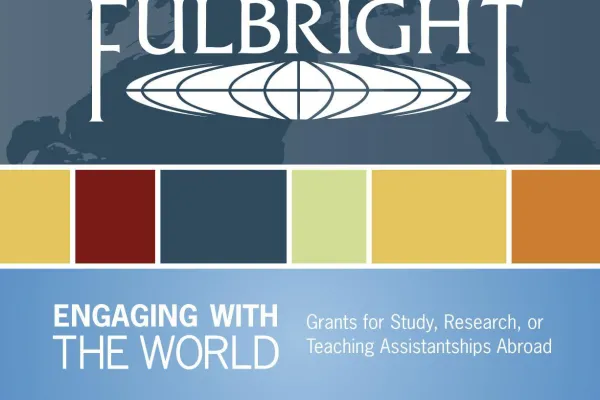Standing Out: 19 Smith Students, Alumnae Receive Fulbright Awards
Research & Inquiry

Published May 11, 2015
When it comes to Fulbright success at Smith, the numbers tell the story:
- Over the past decade, Smith has won more Fulbright awards than any other liberal arts college in the country.
- Since the program was established at Smith in 2001, the college has surpassed the 200 mark in the number of Fulbright fellowship offers.
- Smith’s Fulbright success rate of 53 percent winners to applicants has been the highest in the past decade among the nation’s top-ranking colleges—including among Ivy League schools. The college’s Fulbright success rate in some years has been more than three times the national average.
This year, a record 42 Smith students and alumnae applied for the competitive international scholarship and teaching awards, and 19 were awarded Fulbright fellowships. The merit-based grants program was founded by U.S. Senator J. William Fulbright in 1946 and is administered by the Institute of International Education.
Of Smith’s 19 fellows, nine plan to undertake research projects on four continents, two will study for master’s degrees at universities in England, and seven will teach English in nations spanning the globe, said Donald Andrew, Smith’s fellowships adviser.
Smith students have received Fulbright offers for study and teaching projects around the globe—from Morocco to Belgium to South Korea.
Among this year’s fellowship recipients are Thea Dennis ’15, who will be researching new targets for breast cancer therapy in Belgium; Caitlin Jordan AC ’13, who will be a teaching assistant at a high school in Indonesia; and “Alice” Yiqian Wang ’15, who will explore the impact of economic disparity on democratic governance at the University of Warwick in England. Other fellowship descriptions are available online.
What’s the reason for Smith’s outstanding success in the Fulbright arena?
Andrew credits the scope of Fulbright mentoring on campus, noting that more than 250 Smith faculty and staff are involved in recommending and advising students on their fellowship applications.
“The fellowships program plays a vital role in helping students review the many project options to choose one that matches their background,” he said.
Applicants must consider from among 235 Fulbright options on numerous topics in all disciplines among the 160 countries in the program, Andrew noted.
Fellowships program advisers also play an important role in teaching students expository grant writing and research study design, Andrew said.
“Designing a research project can be particularly complex, along with dealing with a foreign country and a foreign language,” he said. “Our mentors really take students under their wing and support them through the process.”
Smith’s strong Fulbright showing builds on the college’s broader success with international awards.
Tess Grogan ’14 was awarded a prestigious Marshall Scholarship—Smith’s first in 32 years—to study medieval and Renaissance literature this fall at the University of St. Andrews in Scotland.
The coveted UK fellowship follows the first Smith-sponsored Rhodes Scholarship, awarded last year to Clarke Knight ’14, a chemistry major from Henderson, Nev.